What To Expect
South Africa is the most popular destination for travelers in Sub-Saharan Africa since it is the most developed nation in the region and it has a great mix of things to see and do including bustling urban cities, beautiful beaches and landscapes, and a large variety of amazing wildlife which is what draws most people to this region in the first place.
Most people are familiar with Cape Town, the country’s second largest city and probably its most famous. It has some stunning views, beautiful beaches, and great nightlife. It’s a great place to get introduced to South Africa, but you should also visit the cities of Johannesburg and Durban to really get a feel for the culture.
Other cities worth checking out include Pretoria, Bloemfontein, Port Elizabeth, Pietermaritzburg, and Soweto, each of which has its own flair. But of course, the biggest draw to South Africa is all the wonderful natural attractions it is home to.
The most popular is Kruger National Park, where you can see all of Africa’s most famous wildlife. Other popular natural attractions include the Garden Route, the Drakensberg Mountains, the Cape Winelands, Blyde River Canyon, and Kgalagadi Transfrontier Park.
South Africa can be dangerous, even in cities, so caution is advised when visiting, but if you stay safe, it’s a great destination for all!
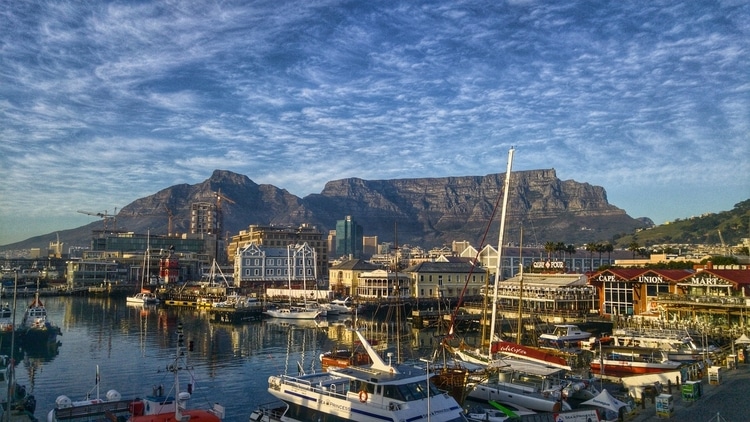
Citizens of most developed countries can enter South Africa visa-free for up to 30-90 days, depending on the country. If you’re not a citizen of a visa-exempt country, then you must go to the nearest South African embassy and apply for a Tourist Visa to be granted entry.
Note: an eVisa is currently in the testing phase for certain nationalities that aren’t visa-exempt
The Hepatitis A and Typhoid vaccines are recommended, especially if traveling to rural areas. Also make sure you are up to date on your standard vaccinations and consult a health professional for further advice.
In addition, a Yellow Fever vaccination is mandatory if you are traveling to South Africa from a country with a risk of YF transmission, including if you only passed through the airport.
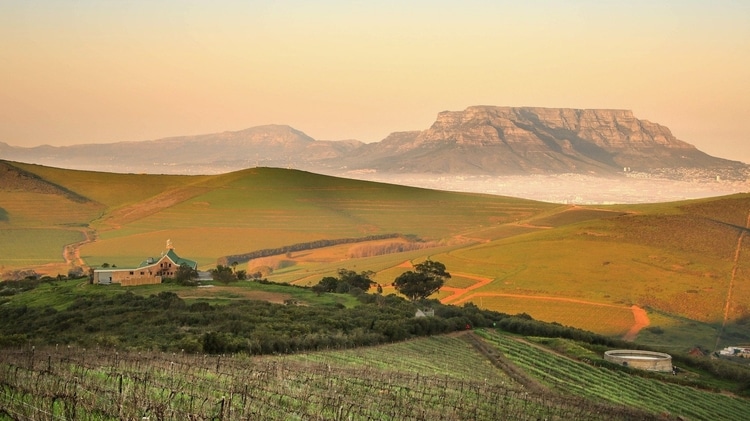
Key Information
Population: 59 Million
Capital Cities: Cape Town, Pretoria, & Bloemfontein
Languages Spoken: Afrikaans, English, & other local languages
Currency: South African Rand (ZAR/R)
Railway: Shosholoza Meyl
Driving Side: Left
Largest Airports:
1. Johannesburg (JNB) – O. R. Tambo
2. Cape Town (CPT)
3. Durban (DUR) – King Shaka
4. Port Elizabeth (PLZ)
5. East London (ELS)
Best Time To Visit
South Africa has 4 different climates to be aware of. On the coasts there’s a mediterranean climate with mild winters and warm summers. In the southwest, rainfall is limited to the winter whereas the further east you go, it becomes more consistent year-round.
Once you head inland, it gets hotter throughout the country. The northwest has a desert-like climate with hot summers and warm winters. Rainfall is uncommon and occurs mostly in the summer.
The central and northeastern parts of the country have pretty consistently hot weather throughout the year, although summer experiences the most rain and winter nights can get cold. And as for the eastern highlands, winters are warm and summers even warmer, but they also get most of the rainfall.
Therefore the best time to visit South Africa is generally during its shoulder seasons (March – May & September – November) when rainfall is limited and temperatures are pleasant nationwide. If only visiting the coasts (Cape Town / Durban), then the summer (December – February) is the best time. Just make sure to book your reservations in advance!
High Season: December – March
Low Season: June – September
Top 5 Destinations
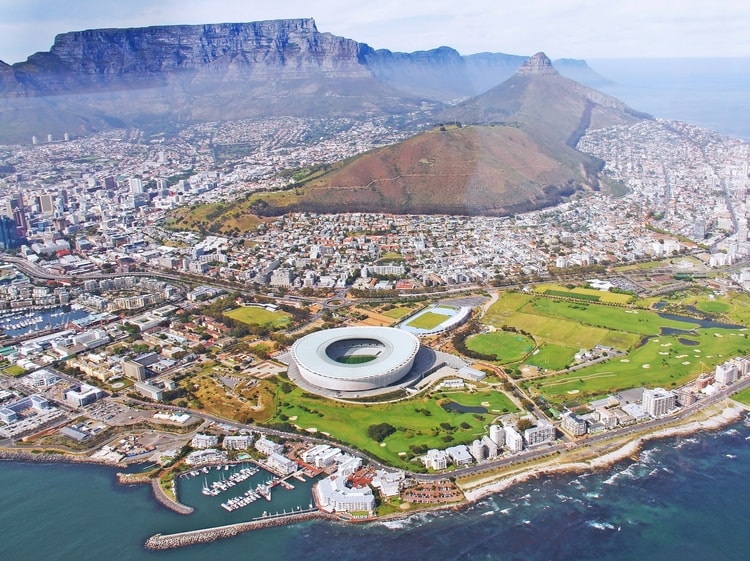
Cape Town

Kruger Park
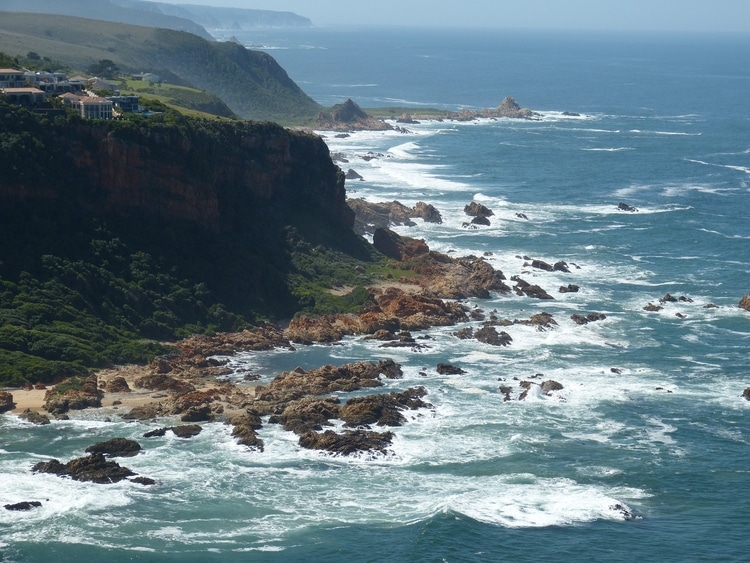
Garden Route

Johannesburg

Durban
Currency Information
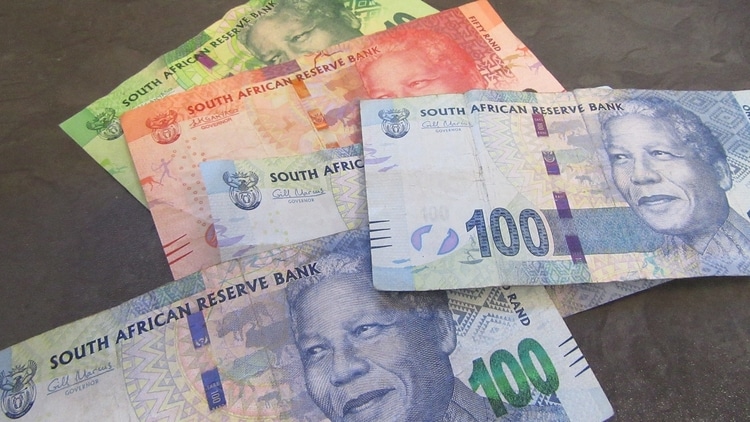
The currency used in South Africa is the South African Rand (ZAR/R) and the notes come in denominations of R 10, R 20, R 50, R 100, & R 200.
The Rand is further divided into 100 Cents (c) and the coins come in denominations of 5c, 10c, 20c, 50c, R 1, R 2, & R 5.
Use the currency converter below to determine the latest exchange rate.
Tipping Guide
Tipping is customary in South Africa, especially for good service, so here are some important guidelines to follow:
Hotel Bellhops: R 20-30 per bag
Hotel Housekeepers: R 20-30 per day
Restaurant Servers: check if a service charge is already included and if not, then tip 10-20%, depending on the quality of the service provided
Bartenders: 10-20%, depending on the quality of the service
Taxi/Uber Drivers: 10% of the total fare
Tour & Safari Guides: 10% of the total tour price on single-day tours and between R 200-300 per day on multi-day tours
Safari Trackers: R 100-200 per day
Note: tips should be left in cash and given directly to the person you wish to receive them. Small tips (R 5-10) should also be given to anyone else providing you with a service such as gas station attendants and car park guards.
Power Outlet Information



South Africa uses 3 different power outlet types. Similar to most of Europe, they use the Type C outlet.
However, they also use Type M and Type N outlets. While Type M looks similar to Type D, they are incompatible. This is also the case with Type N and Type L.
Luckily though, Type C plugs can fit in Type N outlets meaning that you only need two adapters when traveling to South Africa: Type C & Type M.
Get your compatible Type C adapter here.
Get your compatible Type M adapter here.
The voltage used in South Africa is 230V. Learn more about how this may affect your electronic devices in my Guide to the Top Travel Accessories.
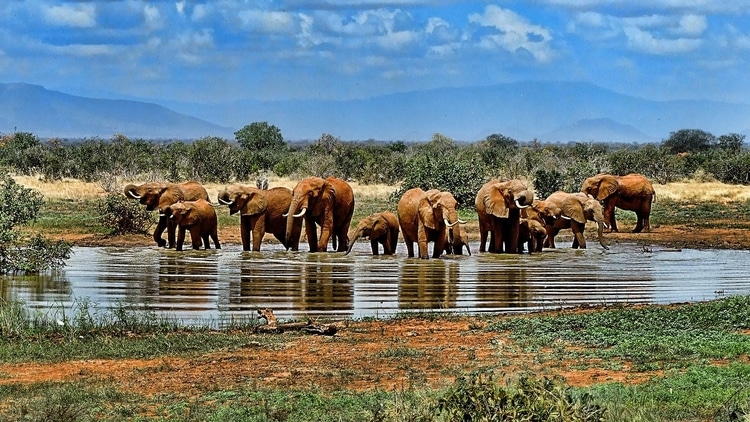
Cellphone Information
South Africa has good overall 4G LTE coverage, but it can be spotty in rural areas. Make sure your phone is GSM-compatible with at least one of the primary 3G frequencies and the primary 4G LTE band used in the country to ensure you will always have a connection.
Learn more about this in my Guide to Travel-Ready Phones.
Information about local prepaid SIM cards in South Africa
Calling Code: +27
Emergency Numbers: 10111 (Police), 10177 (Ambulance & Fire)
3G Frequencies Used: 2100 & 900 (primary) + 850
4G LTE Bands Used: 3 (primary) + 1 & 40


